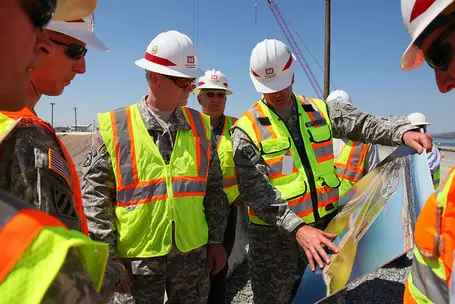Teaching about Risk and Resilience: Sea Level Rise, Flooding, and Earthquakes

Florida Center for Environmental Studies, Florida Atlantic University
Boca Raton, FL
May 14-16, 2014
Note: this workshop has already taken place. Read the workshop synthesis for a summary of key ideas and see the workshop outcomes for materials developed in association with the workshop. Workshop presentations and summaries of discussions are available on the program page; participants' activity, course, and essay contributions are available via the participants page.
Preparing for or responding to an environmental disaster requires knowledge from many disciplines and real time interdisciplinary problem solving. The interaction between the extreme event, people in its path and the response mechanisms of government and business combine at one place and time. How do we prepare students for careers where they can make useful and valuable contributions that mitigate risks and increase resilience in the face of a growing population and changing environment? What do students need to know about risk and resilience? What foundational knowledge will prepare them to communicate with, learn from, and work with experts from the range of disciplines that are needed to address these problems?
This workshop will bring together educators from the variety of disciplines that prepare students to address natural disasters with those currently engaged in addressing these challenges. Focusing on case studies, we will share best practices in education to help students to understand needs of different stakeholders and to prepare students for careers related to hazard mitigation and adaptation. We will consider how partnerships among academia, civil society, and the business community will enhance both student learning and community preparedness. We will identify needs for curricular resources and discuss how to meet these needs.
This workshop is open to 30 faculty (by application) and there is no registration fee to attend. Participation for non-academics is by invitation. Workshop stipends are available to help defray travel expenses in cases of financial need. Accepted participants are expected to contribute teaching materials to a new web-based collection devoted to teaching about risk and resilience across the disciplines.
Read the workshop overview for details about the workshop goals, schedule, expectations for participants, and how to apply.
Workshop Conveners
Leonard Berry, Florida Center for Environmental Studies
David Blockstein, National Council for Science and the Environment
Cathryn Manduca, Science Education Resource Center, Carleton College
Mantha Mehallis, Florida Atlantic University
John Taber, IRIS (Incorporated Research Institutions for Seismology)
Join the Discussion
Read the email list discussion, join the email list or unsubscribe using the Teaching about risk and resiliency email list.
 This workshop is part of the InTeGrate project for interdisciplinary teaching of geoscience for a sustainable future. InTeGrate is a 5-year, National Science Foundation (NSF) STEP Center grant, running from 2012 through 2016. This work is supported by a NSF collaboration between the Directorates for Education and Human Resources (EHR) and Geociences (GEO) under grant DUE - 1125331. Learn more about this project.
This workshop is part of the InTeGrate project for interdisciplinary teaching of geoscience for a sustainable future. InTeGrate is a 5-year, National Science Foundation (NSF) STEP Center grant, running from 2012 through 2016. This work is supported by a NSF collaboration between the Directorates for Education and Human Resources (EHR) and Geociences (GEO) under grant DUE - 1125331. Learn more about this project.